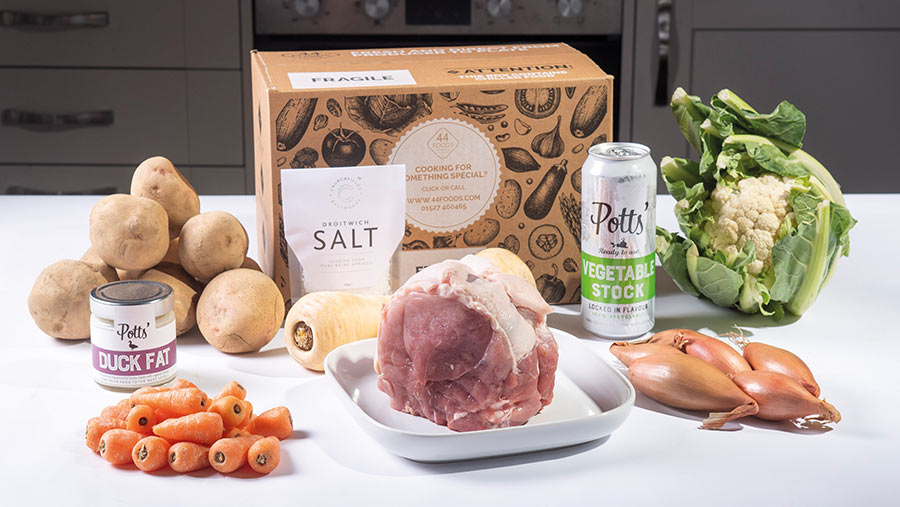Producers set their own prices for top-end online retailer
 © 44 Foods
© 44 Foods A food retailer is offering farmers the opportunity to set the prices it pays them for milk, meat and other foods in line with their cost of production.
44 Foods describes this as the fairest, most ethical business model as the squeeze on farm incomes intensifies.
Supermarket price wars have widened the gap between retail prices and what it costs to produce that food – and rising farm input costs are adding to the pressure, says the online retailer.
See also: So you want to sell food to the public
Its managing director, Hannah Anderson, says the firm has a unique business model in allowing farmers to price their produce at a level that reflects the time, work and cost of producing it.
The business is a high-end retailer – a 1.6kg beef sirloin joint costs £40 and a 2.2kg whole leg of lamb £39.60 – and Ms Anderson says it has had to increase its prices to take account of rising production costs.
Fair price
“We already charge what we believe is a fair price, so any further price rises for us will be to ensure that our producers are paid what they deserve, unlike supermarket rises, which are designed to protect the huge margins that supermarkets operate within,” she says.
44 Foods launched 18 months ago and currently sells about 1,500 food boxes a month.
The business says the prices it pays its suppliers are not agreed by negotiation – they are set solely by those producers.
Ms Anderson admits the food 44 Foods sells isn’t affordable for everyone, but says it is offering an option that is ethical and that protects the livelihoods of producers.
“It really is a double-edged sword. It’s absolutely not right that we’re seeing so many families struggling, but it’s important to remember that producers and their employees, who have been struggling for many years, have families to feed too,” she says.
Case study: Martyn Rowley, Market Drayton
Martyn Rowley, of Buttercross Butchers, Market Drayton, has been selling to 44 Foods since its launch.
The former pig farm manager, who supplies pork, lamb, poultry and beef, has just increased his prices by 5% to reflect his higher costs of production.
“It is the first time we have put the prices up in 18 months, but we could ask for a price rise every week if we needed to, that’s the way our supply agreement works,” says Mr Rowley.
“We know our costs and we work on a set gross margin across the business. When our cost base rises, we have to pass some of that on or we just wouldn’t be sustainable.
“The price of food has to be at a level that suppliers can live from.
“If we were too greedy, we wouldn’t sell anything – we understand that our buyer needs to make a profit, too,” says Mr Rowley.
Despite the security of 44 Foods’ payment structure, he says that the impact of inflation on inputs is a major concern.
“You can’t not be concerned when the nation is forced to tighten its belt, but the overriding opinion is that quality always maintains its position,” says Mr Rowley.
